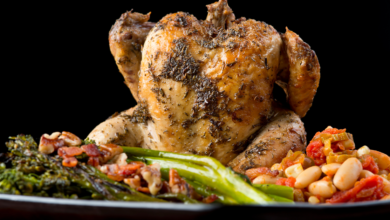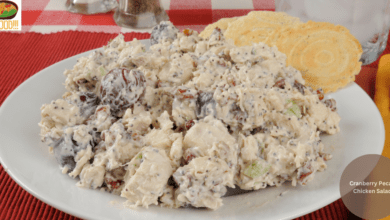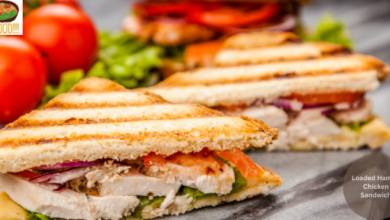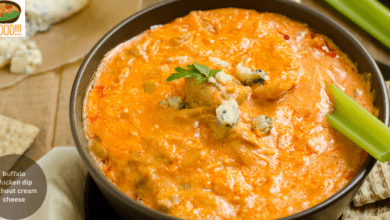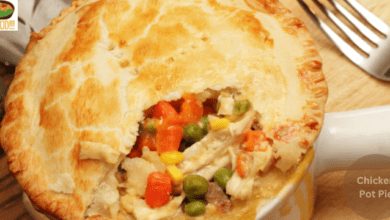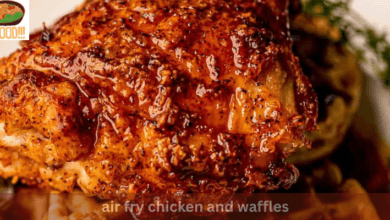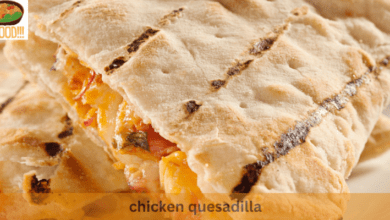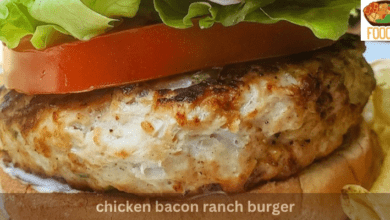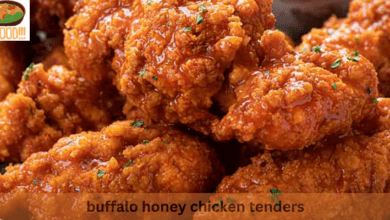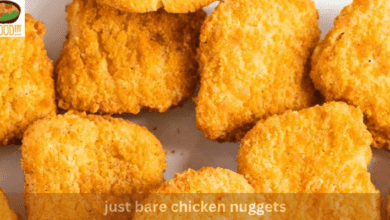convection roast turkey
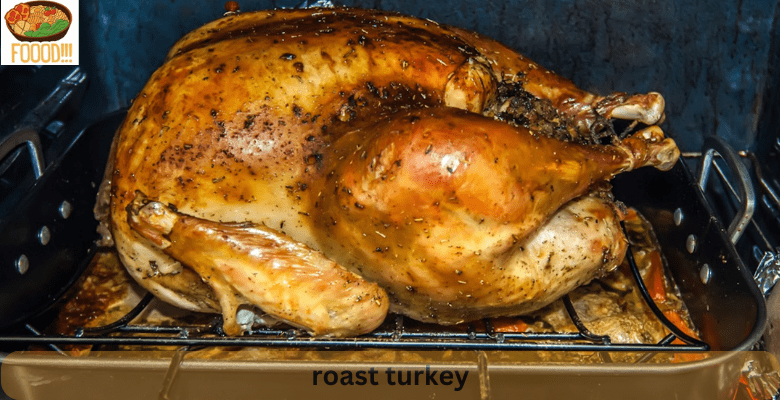

Contents
- 1 Introduction to Convection Roast Turkey:
- 2 Why choose convection roast turkey?
- 3 Convection roast turkey recipe:
- 4 Convection roast turkey ingredients:
- 5 Convection roast turkey instructions:
- 6 Pro tips:
- 7 Convection roast turkey nutrition:
- 8 Convection roast turkey calories:
- 9 Follow us on social media:
- 10 Frequently Asked Questions:
- 11 Should I use convection roast for turkey?
- 12 Can you cook a turkey on convection roast?
- 13 What is the best temperature to cook turkey in a convection oven?
- 14 Is convection roasting better?
Introduction to Convection Roast Turkey:
Convection roast turkey is a tasty and well-known technique for cooking a delicious and delightful turkey. This cooking strategy consolidates the advantages of convection intensity and roasting to make a perfectly sautéed and equally cooked bird. Whether you’re setting up a Thanksgiving feast or facilitating an extraordinary event, convection roast turkey can be a show-halting focal point for your dinner. It’s a chicken recipe.
Here is a short prologue to convection roast turkey:
- Preparation: To begin, you’ll require a defrosted and cleaned turkey. It’s vital to eliminate the giblets and neck from the hole, assuming they are incorporated. You can prepare the turkey with your selection of spices, flavours, and aromatics, both all around, to implant it with flavour.
- Convection Oven: Convection broilers have a fan that flows hot air, giving even intensity throughout the cooking chamber. This fan assists with cooking the turkey all the more uniformly and effectively.
- Temperature: Preheat your convection broiler to the suggested temperature, regularly around 325°F (163°C). The convection setting might require a marginally lower temperature compared with regular roasting.
- Roasting Pan: Put the carefully prepared turkey on a roasting rack inside a roasting dish. Lifting the turkey permits hot air to circle around it, guaranteeing it cooks equally. You can likewise add vegetables or spices to the lower part of the prospect flavour.
- Cooking Time: Convection roast turkey commonly cooks quicker than customary roasting strategies because of the proficient intensity. In any case, cooking times can change depending on the turkey’s size. A common rule is to permit roughly 12–15 minutes of cooking time per pound (around 0.45 kg). Utilise a meat thermometer to really take a look at the interior temperature of the thickest piece of the turkey, holding back nothing.
- Basting: While not generally important, you can treat the turkey with container squeezes or dissolved margarine to keep the skin wet and give it a lovely, brilliant earthy tone.
- Resting: In the wake of eliminating the turkey from the stove, let it rest for around 20–30 minutes prior to cutting. This resting period permits the juices to rearrange, guaranteeing a succulent and delicate eventual outcome.
- Carving: Once refreshed, cut the turkey into cuts or present it entire at the table for a dazzling show.
Convection roast turkey is a phenomenal method for achieving an impeccably cooked, delightful turkey with fresh skin and delicious meat. With the convection stove’s assistance, you can partake in a tranquil cooking experience and dazzle your visitors with a divine occasion highlight.
Why choose convection roast turkey?
Deciding to set up a convection roast turkey offers a few benefits that make it an engaging cooking technique for this exemplary occasion focal point. Here are a few justifications for why you could pick convection roast turkey:
In any event, convection stoves use a fan to flow hot air, guaranteeing that intensity is dispersed uniformly all through the broiler hole. This implies that your turkey will cook consistently, decreasing the risk of unevenly cooked or dried-out areas.
- Shorter Cooking Time: Convection cooking commonly decreases cooking time compared with traditional roasting. The productive intensity flow permits you to set up your turkey all the more rapidly, which can be especially useful when you have a tight timetable or a huge get-together to take care of.
- Crispy Skin: The reliable intensity of a convection stove advances the improvement of perfectly caramelised and firm turkey skin. This is often a helpful element, as many individuals partake in the differentiation between the fresh skin and the delicate meat under.
- Energy Efficiency: While convection broilers may at first use more energy to preheat, they frequently consume less energy during the genuine cooking process because of the decreased cooking time. This can prompt an increase in energy reserve funds over the long haul.
- Moist Meat: Convection roast turkey holds dampness well because of the limited cooking time and even intensity of appropriation. This results in delicious, delicious meat that is more averse to drying out.
- Reduced Need for Basting: Since convection cooking keeps up with dampness in the turkey, you might find that you want to treat less every now and again or not by any stretch. This can improve the cooking system and decrease the requirement for steady consideration.
- Consistency: Convection broilers provide a reliable and unsurprising cooking climate. This makes it more straightforward to achieve steady outcomes while setting up your turkey, diminishing the risk of overcooking or half-cooking.
- More Capacity: Numerous convection broilers are planned with bigger cooking limits, permitting you to at the same time roast a larger turkey or various dishes. This can be profitable while cooking for an enormous gathering or setting up different dishes for a vacation feast.
- Versatility: Convection stoves are adaptable machines that can be utilised for different cooking undertakings beyond roasting turkey, like baking, searing, and drying out. This flexibility can make them an important addition to your kitchen.
In outline, deciding to convection roast your turkey can prompt a very cooked, tasty, and outwardly engaging outcome. The upsides of cooking, more limited cooking times, and firm skin make it a famous decision for the majority of home cooks, especially during social events when you need to dazzle your visitors with a scrumptious and impeccably pre-arranged turkey.
Convection roast turkey recipe:
Certainly! Here’s a convection roast turkey recipe with estimated cooking times based on the turkey’s weight. Please note that cooking times can vary depending on your specific oven and the turkey’s size, so it’s essential to use a meat thermometer to ensure the turkey reaches an internal temperature of 165°F (74°C) for safety.
Convection roast turkey ingredients:
- 1 whole turkey (12–15 pounds, 5.4-6.8 kg), thawed and giblets removed
- 2-3 tablespoons of olive oil or melted butter
- Salt and pepper to taste
- 1 onion, quartered
- 1 lemon, quartered
- 4-5 sprigs of fresh rosemary, thyme, or sage (or a combination)
- 4-5 garlic cloves, peeled
- 1 cup chicken or turkey broth (for basting)
Convection roast turkey instructions:
- Preparation:Preheat your convection stove to 325°F (163°C).
Wash the turkey in cool water and wipe it off with paper towels.
Rub the turkey all around with olive oil or liquefied margarine. Season liberally with salt and pepper.
Place the onion, lemon, new spices, and garlic cloves inside the turkey pit.
Support the turkey’s legs with kitchen twine for cooking. - Roasting:Put the carefully prepared turkey on a roasting rack inside a roasting dish, breast side up.
Pour the chicken or turkey stock into the lower part of the roasting dish to keep drippings from consuming and to add flavour.
Embed a meat thermometer into the thickest piece of the turkey’s thigh without contacting the bone. - Cooking Times:For a 12–15-pound (5.4-6.8 kg) turkey, here are the exact cooking times in view of the convection roast technique:
12 pounds: Around 2.5 to 3 hours
13 pounds: Around 2.75 to 3.25 hours
14 pounds: Around 3 to 3.5 hours
15 pounds: Around 3.25 to 3.75 hours - Basting:Treat the turkey with the skillet squeezes at regular intervals to keep it wet and advance carmelizing. Utilise a seasoning brush or a turkey baster for this.
- Checking Doneness:Screen the temperature of the turkey with the meat thermometer. At the point when it comes to 165°F (74°C) in the thickest piece of the thigh, the turkey is finished.
On the off chance that the skin is getting too brown before the turkey arrives at the ideal temperature, you can cover it freely with aluminium foil. - Resting:When the turkey reaches 165°F (74°C), remove it from the stove.
Permit the turkey to rest for 20–30 minutes prior to cutting. This resting period allows the juices to rearrange, bringing about juicier meat. - Carving:Cut the turkey into pieces and serve it with your #1 side dish.Recall that these are estimated cooking times, and depending on the meat thermometer for exact doneness is fundamental. Partake in your flavorful convection roast turkey as the focal point of your feast!
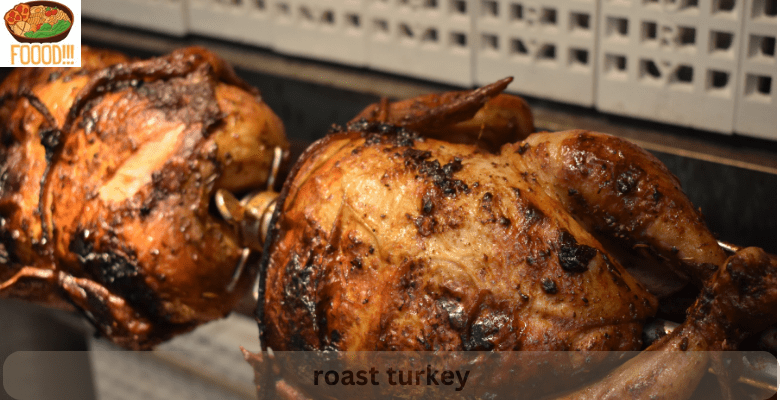

Pro tips:
Surely! Accomplishing the ideal convection roast turkey includes scrupulousness and a few expert tips to guarantee a delightful and delicate outcome. Here are a few master tips for convection roasting your turkey:
- Thoroughly Thaw the Turkey: Guarantee your turkey is totally defrosted prior to cooking. A frozen turkey will cook unevenly, and the outside might become overcooked while the inside remains half-cooked.
- Use a Quality Meat Thermometer: Put resources into a dependable meat thermometer to screen the turkey’s interior temperature precisely. A moment-read thermometer or a leave-in test thermometer can make the cycle significantly more sensible.
- Preheat the Oven: Permit your convection broiler to preheat completely prior to putting the turkey inside. This guarantees a steady cooking climate all along.
- Truss the Turkey: Supporting or integrating the turkey’s legs with kitchen twine helps the bird cook all the more equally and keeps up with its shape for a superior show.
- Season Generously: Don’t be timid with the flavoring. Rub the turkey all around with oil or margarine, and season it liberally with salt and pepper. You can likewise add spices and flavours for additional character.
- Use Aromatics: Stuff the turkey hole with aromatics like onion, lemon, new spices, and garlic. These add depth of flavour to the bird as it cooks.
- Rack Placement: Guarantee the turkey is on a roasting rack inside the dish. This hoists the turkey, permitting air to flow under, advancing in any event, cooking, and fresh skin.
- Basting Technique: While treating the turkey, be delicate and stay away from temperature changes in the stove. Utilise a treating brush or turkey baster and break the recurrence to about at regular intervals.
- Cover with Foil if Necessary: Assuming that you notice the turkey skin is caramelising excessively fast, freely tent it with aluminium foil. This will prevent unnecessary searing while the inside keeps on cooking.
- Rest the Turkey: Subsequent to eliminating the turkey from the stove, let it rest for somewhere around 20–30 minutes prior to cutting. This permits the juices to rearrange, bringing about juicier meat.
- Carving Skills: Figure out how to cut the turkey appropriately to guarantee flawless cuts and negligible waste. Utilise a sharp cutting blade and a cutting fork for the best results.
- Save the Drippings: Gather the delightful dish drippings for making sauce. These juices are rich in turkey flavour and can upgrade your sauce.
- Plan Ahead: Compute the cooking time in light of the turkey’s weight, and afterward add additional time for resting and likely postponements. This guarantees your turkey is prepared when you need to serve it.
- Safety First: Consistently focus on food handling. Completely clean up utensils and ledges while dealing with crude turkey, and guarantee the bird arrives at a safe inward temperature of 165°F (74°C).
- Practice and Patience: Convection roast turkey can take a lot of training to get perfect. Cheer up in the event that it’s noticeably flawed at the initial time. With experience, you’ll become a master at achieving a heavenly and delightfully roasted turkey.
By following these genius tips, you’ll be well en route to making a critical and heavenly convection roast turkey that will intrigue your family and visitors during your extraordinary events.
Convection roast turkey nutrition:
Certainly, here’s a table outlining the approximate nutrition percentages for a serving of convection roast turkey, based on a 3.5-ounce (100-gramme) portion:
| Nutrient | Percentage of Daily Value |
|---|---|
| Calories | 135 calories (7%) |
| Protein | 30 grammes (60%) |
| Total Fat | 1.2 grammes (2%) |
| Saturated Fat | 0.3 grams (2%) |
| Cholesterol | 80 milligrammes (27%) |
| Sodium | 45 milligrammes (2%) |
| Total Carbohydrates | 0 grammes (0%) |
| Dietary Fibre | 0 grammes (0%) |
| Sugars | 0 grammes (0%) |
| Vitamin D | 0.1 micrograms (1%) |
| Calcium | 10 milligrammes (1%) |
| Iron | 1 milligramme (6%) |
| Potassium | 280 milligrammes (6%) |
Rates depend on a day-to-day diet of 2,000 calories. Your everyday qualities might be higher or lower, depending on your calorie needs.
If it’s not too much trouble, note that these qualities are rough and can shift depending on variables, for example, the particular cut of turkey, how it’s ready, and whether you consume the skin. It’s likewise fundamental to think about the general dinner’s wholesome substance, including side dishes and sauces, while surveying the dietary effect of your feast.
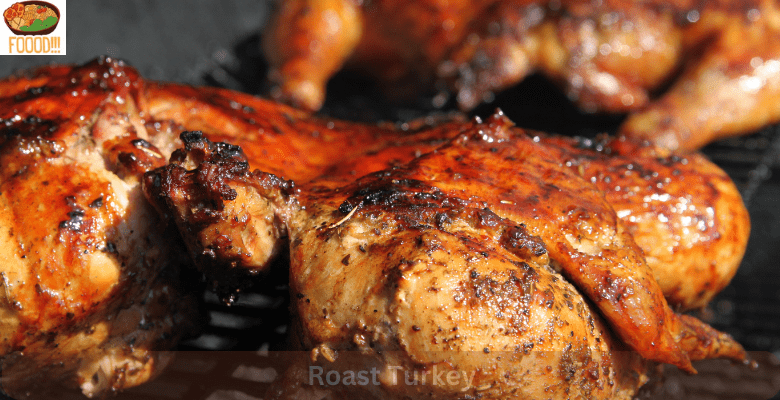

Convection roast turkey calories:
The quantity of calories in a convection roast turkey can change contingent upon factors like the turkey’s size, planning, and serving size. Overall, a 3.5-ounce (100-gramme) part of roasted turkey, without the skin, regularly contains roughly 135 calories. Nonetheless, this number can change assuming that you incorporate the skin or use extra flavours and fats during planning.
Remember that the size of your turkey serving will ultimately influence the carbohydrate level. Bigger servings will contain more calories, so it’s fundamental to be aware of piece sizes while ascertaining the calorie content of your dinner.
| Follow me on Facebook. | Click Here |
| Follow me on Twitter. | Click Here |
| Follow me on linkedin. | Click Here |
| Follow me on Pinterest. | Click Here |
Frequently Asked Questions:
Should I use convection roast for turkey?
Convection roast is an incredible choice for cooking turkey. It flows hot air around the turkey, bringing about cooking and fresh skin. Simply make sure to diminish the stove temperature by 25°F (around 14°C) and screen the turkey's inward temperature to guarantee it arrives at a safe 165°F (73.9°C).
Can you cook a turkey on convection roast?
Indeed, you can cook a turkey on convection roast. Convection roast is a cooking mode in numerous broilers that utilises a fan to circle hot air equitably around the turkey, resulting in a firm and uniformly cooked bird.
What is the best temperature to cook turkey in a convection oven?
The recommended temperature for cooking turkey in a convection oven is 325°F (163°C).
Is convection roasting better?
Convection roasting is by and large viewed as better compared to conventional roasting because of multiple factors. It utilises a fan to flow hot air, which brings about more in any event, preparing and caramelising food. This implies your dishes are more averse to having unevenly cooked or consumed spots.

